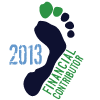... As far an a sustained effort, look at what the elite ultrarunners do. They run for hours upon hours in the anaerobic zone with little caloric intake...
Jason I cannot help but wonder if your definition of anaerobic zone is somehow different to mine. When i refer to Anaerobic exercise im typically refering to exercise performed above the Lactate Threshold or when the production of lactate outstrips your bodys ability to metabolise it. At this performance level a signifficant proportion of the energy requirements are being meet by anaerobic glycolysis, hence the accumulation of lactate, some proportion of energy needs will still be meet by Aerobic glycolysis, while energy supplied from fat oxidation is likely to be minimal. The body can only maintain performance at that level as long as the lactate concentration doesnt get to high. Even if you reduce performance to LT or even just under it the body can only maintain that performance level while it has glycogen available .... those glycogen stores as we know are limited. Once fully depleted your only source of energy is fat oxidation.
I think you would agree that runners that are able to maintain a certain pace for many hours without significant calorie consumption cannot be relying only on glycogen, They are getting a significant portion of their energy requirements from fat oxidation, with some from Aerobic glycolysis, while energy supplied from Anaerobic glycolysis would be minimal. An body supplying its energy requirments so must be well under the lactate threshold, and thus it is Aerobic
So i would contend that these elite athlete's rather than running in their Anaerobic zone must be running in ther Aerobic zone. The fact that they are able to maintain such astonishing performance levels whilst consuming relativly small amounts of calories indicates that they have a highly trainined fat oxidation cycle, that it is able to supply a significant portion of their enery needs at that pace....
How they got it there is the interesting part, and where i think the concept of 'training while fasted' so that your forced to run in a glycogen depleted state comes in. It forces your body to adapt to running using Fat Oxidation as the primary energy source, and hence encourages the creation of more mitochodria where that fat oxidation takes place, Increasing your capacity to supply energy via fat oxidation. Fat oxidation however does require more oxygen than Aerobic Glycolysis for the same amount of usable energy, So even though the body may be supplying the majority of the energy requirements through Fat oxidation it will still be breathing hard in order to get as much oxygen as possible in.
Running over trails, uneven terain, hills, or reacting to race tactics just complicates the whole thing further as the body is likely to shift slightly back and foward along the scale. with some sections really being anaerobic whilst others may be slow enough to be almost exclusivly fat oxidation.
But in your Blog post your talk about running Fasted as an alternative to running with a Low HR. From what i gather both approaches are intending to target the same matabolic improvement. From my perspective, when running fasted i know with absolute certainty that i will running a good portion of my run almost exclusively using fat oxidation. Whereas running with low HR but with significant glycogen stores the body still has that glycogen there available, and so there may well not be the same training presure to optimise fat oxidation. Also once glycogen depleted i can push the pace as hard as i like and still know that im running on fat oxidation.... The big downside to training fasted is that its uncomfortable.... but even there i see advantages, i helps with mental preparation.... but that discomfort is probably why its not so appealing. I personally think training fasted is superior to standard low HR programs.
Id still contend that training low for speed work is counter productive, if your wanting to train the lactate shuffle or your ability to continue to perform with high lactate levels you need to produce lactate, which requires glycogen, If your doing sprints to improve form then feeling fatigued may not allow you to run them to maximum effect.











